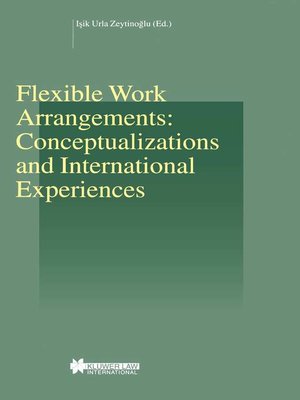Flexible Work Arrangements
ebook ∣ Conceptualizations and International Experiences: Conceptualizations and International Experiences · Studies in Employment and Social Policy Set
By Işik Urla Zeytinoğlu

Sign up to save your library
With an OverDrive account, you can save your favorite libraries for at-a-glance information about availability. Find out more about OverDrive accounts.
Find this title in Libby, the library reading app by OverDrive.



Search for a digital library with this title
Title found at these libraries:
| Library Name | Distance |
|---|---|
| Loading... |
In the world of work as it exists today, the old standards of fixed hours and location have been substantially weakened. Most employers, in fact, prefer to maintain a flexible system of work arrangements that gives them more control over rate of production, assignment of tasks and economic circumstances. The global development of these new and extensive conditions of employment - variously characterized as non-standard, alternative, peripheral, contingent, or atypical - has reached a point at which its significance for both employers and employees (as well as for society in general) can be fruitfully analyzed. Such analysis is the purpose of this book.
Twenty-six scholars present findings from a wide range of national experiences, including those of Australia, Canada, Finland, Germany, Italy, The Netherlands, Sweden, the United Kingdom and the United States. Although the bulk of the study is empirical, the conceptual approach with which the book opens pervades the entire analysis, so that important questions such as the following are raised frequently in differing contexts:
Flexible Work Arrangements can be seen as a culmination of a trend among labour relations professionals that examines the effect of flexible work arrangements on individuals' career, family, health and well-being, as well as effects on the workplace and the society. In its rigorous research and incisive comparative detail, it will be of great value to policymakers, employers and unions, as well as to scholars in the field.
Flexible Work Arrangements is, in great part, the direct result of research findings presented at the European Regional Congress of the International Industrial Relations Association held at Oslo in June 2001.







